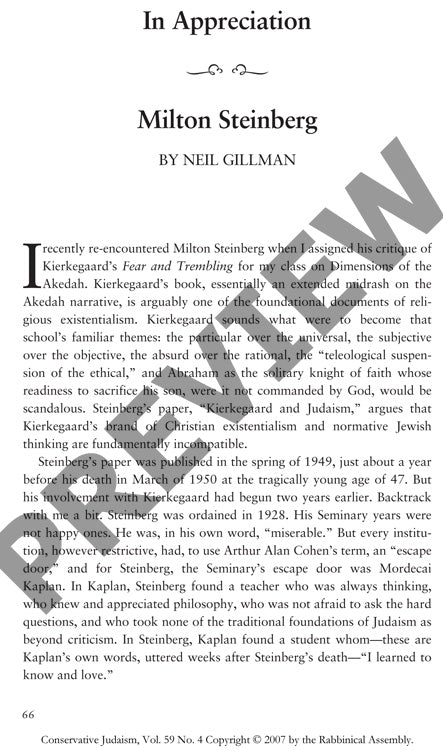Milton Steinberg
Couldn't load pickup availability
In the final years of his life (1947-1950), Rabbi Milton Steinberg underwent a profound theological transformation that challenged both his Reconstructionist roots and the rising tide of existentialist thought. Once a devoted student of Mordecai Kaplan, Steinberg increasingly questioned Reconstructionism's naturalistic theology while simultaneously wrestling with existentialist ideas through his collaboration with Will Herberg. Through close analysis of three pivotal papers—"Kierkegaard and Judaism," "The Theological Issues of the Hour," and "New Currents in Religious Thought"—alongside correspondence and contemporary responses, a unique theological position emerges: one that synthesized existentialist insights with Jewish thought while maintaining critical distance from both traditions. Steinberg's intellectual evolution particularly centered on his critique of Kaplan's conception of God's metaphysical nature, even as he rejected Kierkegaardian Christian existentialism as incompatible with normative Judaism. His theological journey embodied broader tensions within mid-twentieth-century Jewish thought between rationalism and existentialism, ultimately advancing hope as the supreme religious virtue that transcended both faith and reason.

More Information
-
Physical Description
-
Publication Information
Published 2007
ISBN
-
Publication Credits
Neil Gillman

